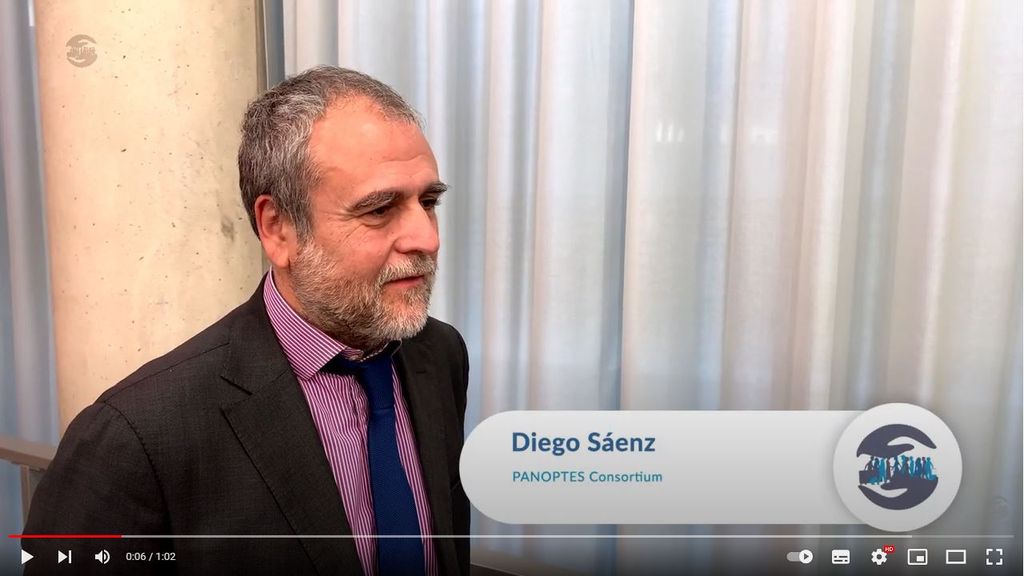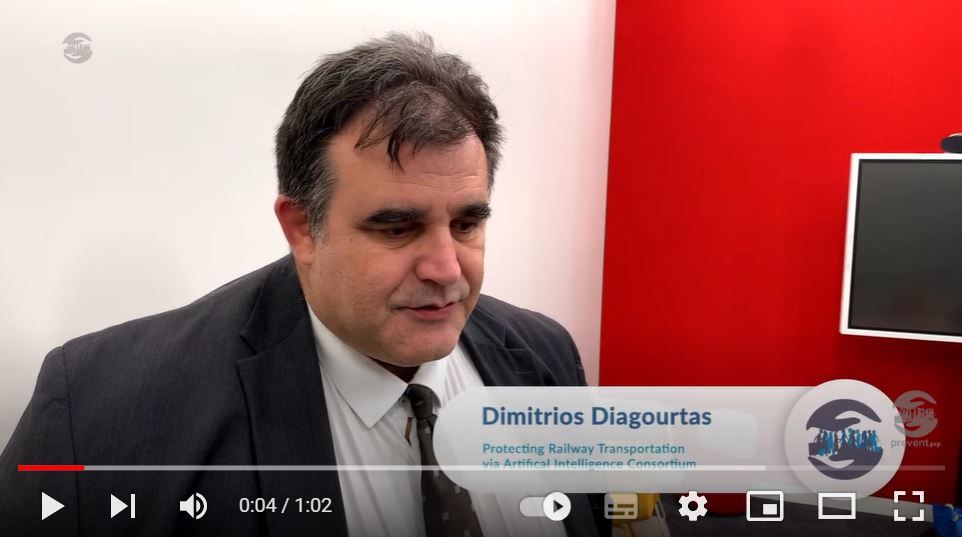
PREVENT PCP testing security solutions identifying threats in public transport
The security prototypes are ready for testing
The PREVENT PCP project partners and User Observatory Group (UOG) met in Barcelona following the UITP Public Transport Summit to launch the prototype testing of security solutions.
The project is looking at augmenting the security in public transport and public areas through pre-commercial procurement of technology solutions that will allow timely automatic detection of potentially dangerous unattended items, identification and tracking of perpetrators, and advanced crisis management system.
This is an exciting point in the project because the qualified Contractors will develop a first prototype based on the design documents delivered in the previous phase and install their Prototypes in the SNCF controlled lab environment, directly connected to 50 cameras from the real CCTV system of Paris Nord Station.
The Prototype Development Phase (Phase 2) will last 7 months. The goal is to measure and verify the technical performance of each solution in real conditions (Factory Acceptance Test), and their readiness for a pre-operational deployment.
The four tenderers awarded a Phase 2 contract:
- BULL SAS – Bull SAS (Atos)
- DAIMON Consortium – CS GROUP France, CERTH, XXII Group
- PANOPTES Consortium – Herta Security S.L., ChapsVision, ACIC SA
- Protecting Railway Transportation via Artificial Intelligence Consortium – Satways Ltd., Imotion Analytics, Vicomtech
Hear more about each contractor




Silvio Sorace, Project Coordinator, tells us about the next steps…
Silvio Sorace, the coordinator of PREVENT PCP will tells us more about the next steps, some of the challenges to overcome and working with the public transport sector.
Please can you tell us more about the prototypes and how they will be tested and analysed?
“At the beginning of Phase 2 (prototypes development), we have shared 250 short videos with the four contractors. They represent the training dataset they can use to train their solutions.
Then, during the validation/evaluation stage, we will use new videos – brand new and unknown beforehand – to test the prototypes to see if they are adaptable to new situations. For fairness reasons, the same dataset – for training and testing – will be used for all contractors.”
How is PREVENT PCP dealing with data privacy regulations?
“Privacy by design and by default guidelines have been prepared, together with checklists to guide the development of solutions. These are compliant to privacy, data protection, security, and ethical issues.
For example, in France, CCTV footage must blur faces. This is a challenge when trying to identify someone who has left their luggage on the station platform. Face blurring, rather than an obligation, it can be considered as a security measure (pseudo-anonymisation), in accordance with the principle of minimisation, to process data that are strictly necessary for the processing purposes of the operators. In other words, to be compliant to all legislations, the algorithms to track the owner of an abandoned item are not using biometric data. It means that the faces are not blurred only in presentation mode but they are not used at all. Rather, people are identified by information such as height and clothing.”
What other challenges do you foresee with the prototype testing?
“Phase 1 (the solution design phase) has been just closed. Phase 2 is a challenge for the four selected Contractors because they have to implement what designed in Phase 1. The prototypes will be installed and tested in Paris Nord station (SNCF) where they will be connected to the real cameras.
From the project’s point of view, the test phase is a challenge because the tests of the security solutions must take place using the same input – for example, at the same time on the same cameras – to ensure maximum level of fairness. It means that, by using a Video Management System, the stream of each camera is forwarded (in real-time) to all the Contractors.”
There is a “user observatory group”, made up of public transport operators, law enforcement and legal entities. What iqs their role with the next phase?
“The main goal of the users observatory group (UOG) is to monitor the project progresses from a holistic point of view. In PREVENT PCP, this is concretely implemented through a continuous interaction and information sharing between not only the project partners, but also the UOG. We are bringing together the end-user needs and enhancing the access to a greater range of public transport operators and law enforcement agencies.
In the next phase, there are four prototype tests in the project, which means that members of the UOG can really see how their remarks and feedback have affected the different solutions. This will also offer crucial learning opportunities for the UOG as well.”
Stay updated with the PREVENT PCP project: www.prevent-pcp.eu
UITP security days: PREVENT PCP info day and SAFE BUS final event
Join us at the PREVENT PCP Info Day which will be held on September 13 in Brussels. The event will provide an excellent opportunity for all interested in the security of public transport to find out how to improve safety through pre-commercial procurement.
The PREVENT PCP Info Day will provide a general overview of the past, current and planned actions. The participants will be familiarised with the rules of setting up a successful pre-commercial procurement (PCP). Additionally, there will be a presentation dedicated to venture capital organisations and their role in supporting the PCP solutions. The event will be concluded with the working table session on the GDPR-related aspects in the context of public transport security.
Membership benefits








